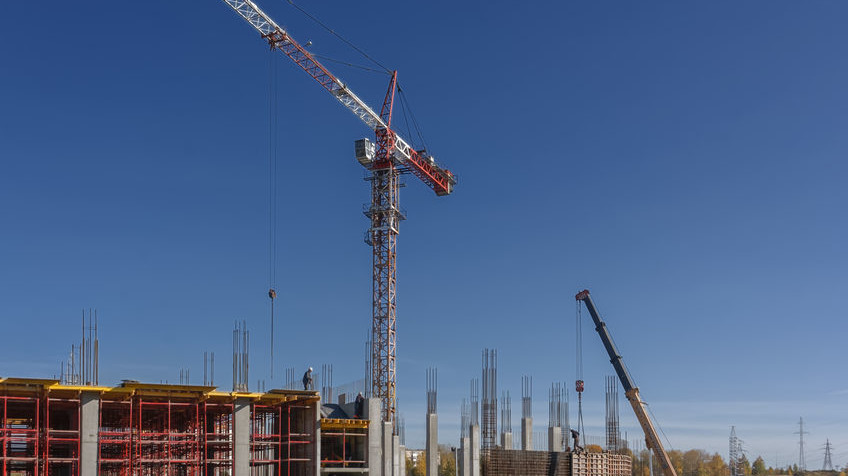Business Survey in Run-Up to the State Elections: Companies in Baden-Württemberg and Rhineland-Palatinate Perform Comparatively Well During the Coronavirus Crisis, Yet Levels of Satisfaction Vary

With a 16 percent drop in profits, companies in Baden-Württemberg and Rhineland-Palatinate have managed to cope with the crisis better than those in most other German states. Only companies from Schleswig-Holstein (12 percent), Brandenburg (13 percent), and Thuringia (14 percent) perform even better. Bringing up the rear are Saarland (22 percent) and Saxony-Anhalt (25 percent). However, satisfaction with the measures taken by the government is only average in the southwest of Germany when compared with the rest of the country.
These are the results of the latest survey conducted by the German Business Panel at the University of Mannheim, in which more than 14,000 companies from all over Germany participated in the periods from July to September 2020 and from November 2020 to February 2021.
Among the group of crisis winners, which were able to increase their profits and sales sharply during the current pandemic, is a particularly large number of companies from Baden-Württemberg. In this category, the federal state ranks second nationwide. Companies in the retail sector, including supermarket chains, drugstores, and building-supplies stores, performed significantly better than those in other federal states. The region's construction sector also performed above average. “The good results are owed to the stable infrastructure, but also to the flexibility of companies in the southwest of Germany,” states Prof. Dr. Jannis Bischof of the University of Mannheim. Bischof holds the Chair of Business Administration and Accounting and is project manager of the German Business Panel. “Companies from Baden-Württemberg are well positioned both nationally and internationally. That pays off particularly well in times of crisis,” he states.
In particular, small companies that do not have any other employees, but also solo self-employed people from Baden-Württemberg and Rhineland-Palatinate were less affected by the coronavirus crisis than those in the rest of the country. Shopkeepers, lawyers, and beauty salons: Even though many of them had to close their businesses for weeks during the lockdown, the losses they suffered in the southwest of Germany were comparatively small:The drop in profits in these two federal states was more than five percentage points lower than the average of the other states.
Overall, both federal states performed comparatively well in the survey. Nevertheless, there was a clear regional difference in one aspect:
Many companies based in Rhineland-Palatinate that had to close during the crisis gave an above-average positive assessment of the government aids: They perceive themselves to be better supported and backed by the state government than the companies in their neighboring state and apparently find it easier to obtain aid money. Those in Baden-Württemberg, on the other hand, showed a more negative view. “However, the fact that companies in Baden-Württemberg are so strongly dissatisfied with the assistance provided by the state government came as a surprise to us in terms of its clarity,” summarizes Johannes Voget. Voget holds the Chair of Taxation and Finance at the University of Mannheim and is also involved in managing the German Business Panel.
Further information on the study
More than 14,000 businesses from all over Germany participate in the representative study on a recurring basis. Of these, 2670 are from Baden-Württemberg and 818 from Rhineland-Palatinate. Based on current data collected until 1 March 2021, the study explores how the measures taken so far affected the businesses’ economic situation. Regular follow-up studies, including those on changes in tax policy and regulatory issues in the wake of the coronavirus crisis, are envisaged.
A summary of the study „Vor den Landtagswahlen im Südwesten: Wie Unternehmen in Baden-Württemberg und Rheinland-Pfalz die Corona-Krise bewerten“ (“In Run-Up to the State Elections in the Southwest of Germany: How Companies in Baden-Württemberg and Rhineland-Palatinate Assess the Coronavirus Crisis”) is available in German here.
The study is based on the surveys conducted by the German Business Panel – the long term survey panel of the trans-regional Collaborative Research Center “TRR 266 Accounting for Transparency”, funded by the German Research Foundation (DFG). For more information, please see: www.gbpanel.org
For more information, please see: www.accounting-for-transparency.de
YouTube channel of the CRC: https://www.youtube.com/channel/UCR-N_RnPKoLHF1_B5MSm6aw
